17 important survival skills you need to know to save yourself
- 13 tips to help you "survive" through dangerous situations
- 8 life tips to keep in mind to keep you safe
- 20 real life lessons that help you live better and more meaningful
Surely one of us is too familiar with the basic safety rules indispensable to protect ourselves as not to control traffic, texting or using mobile phones. . However, life is inherently like to bring us into unexpected difficult situations, but not everyone can quickly find a solution.
Sometimes facing such unexpected situations makes me feel confused, do not know how to deal with it, leading to the unfortunate damage occurred. Everything will become easier if each of us equips ourselves with basic knowledge before the unexpected danger occurs in life.
Take a look at this article to be ready to deal with 17 situations that can be encountered in life and equip yourself with important skills to confidently respond to unpredictable moments.
These situations are screened and voted by readers of the Quora site. Invite you to watch!
1. Our brains cannot handle two things at the same time - avoid using the phone when traveling.
 Photo source: Flickr / Robert Couse-Baker
Photo source: Flickr / Robert Couse-Baker
Safety advisor Murali Krishnan points out that walking and using the phone at the same time will require a large amount of cognitive efforts from the brain.
As a result, we absolutely cannot focus on both at the same time as walking and chewing gum. At that time, you will encounter " inattention blindness ". That means you may see the object ahead but don't know that it is approaching.
2. Remove the blind spots of the vehicle by adjusting the rearview mirror properly.
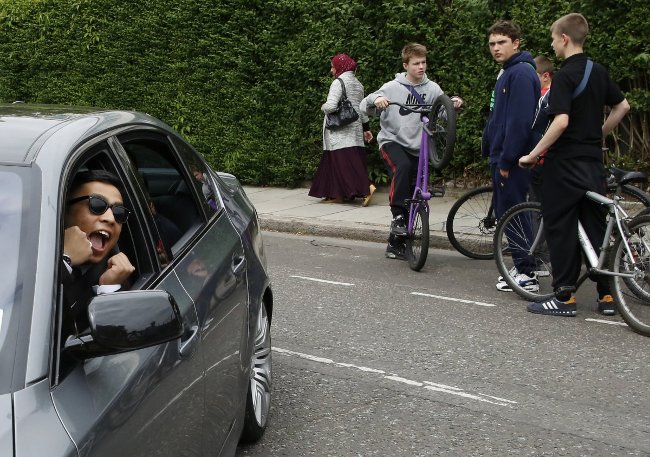 Photo source: Reuters / Olivia Harris
Photo source: Reuters / Olivia Harris
Kristen Rush - a reader, argues: ' Blind spots are inevitable for all types of transport '.
By adjusting the rearview mirror , you can easily see the sides of the car, as well as remove blind spots on either side. The rearview mirrors can help locate any of the vehicles behind traffic. It only takes a few seconds to adjust them, so remember to adjust the mirror before driving.
3. Fluid transfers heat faster than gas, so keep it warm by being always dry.
 Photo source: Flickr / beautifulcataya
Photo source: Flickr / beautifulcataya
Engineer Lia Lavoie said: ' There is a close relationship between wetness and hypothermia; and vice versa '.
So, to ensure your body temperature does not drop quickly in cold weather, invest in clothes made of wool instead of cotton - because wool absorbs more moisture than your skin. will not get wet, so will make you warmer. Of course, do the best to dry your body in the cold season!
4. Do not eat snow to make up for water except for force majeure
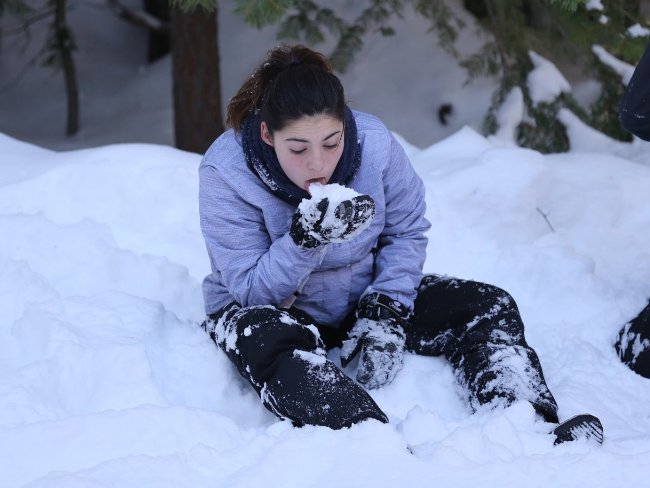 Photo source: Brian Cavan / Flickr
Photo source: Brian Cavan / Flickr
Lavoie adds that our body needs a large amount of energy to convert matter from one form to another.
That is why you should only eat snow instead of water when there is no other way and this is the last resort. Think about it, just increase a small amount of water for your body but lose your precious body temperature, is it worth it?
5. If unfortunately the plane landed in the water, you should only inflate the life jacket after escaping the plane.
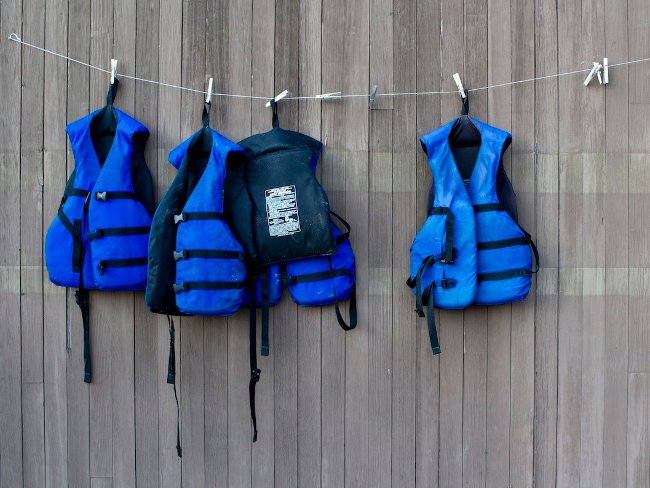 Photo source: Flickr / Barbara Eckstein
Photo source: Flickr / Barbara Eckstein
Reader Alvin Yip warned of the rush to inflate the life jacket as soon as an airplane was landing an emergency wing on the water. Doing so will quickly flood the cabin, making it difficult for you to wear a life jacket.
So the best way is to swim to the emergency exit and then blow up your life jacket.
6. You can perform Heimlich anti-bumping procedure - push your stomach to yourself.
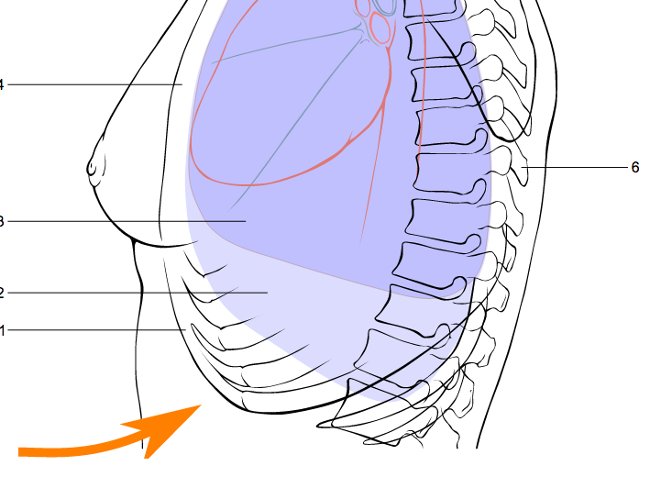 Photo source: Wikimedia Commons
Photo source: Wikimedia Commons
Very few people know that they can knock a piece of food out of their throat by themselves.
Naman Mitruka explained how to perform the Heimlich trick himself:
- Put the right fist - your stronger hand will be just below the upper rib cage. Put your other palms on the fists to push tighter.
- Push the fist inward and upwards on the diaphragm (top of the stomach) quickly and strongly; Repeat many times until the object in your throat is turned out
See also: First aid procedure Heimlich when suffering from a heterozygous object
7. Always carry antihistamines (an anti-allergy medicine) when you arrive in a strange place.
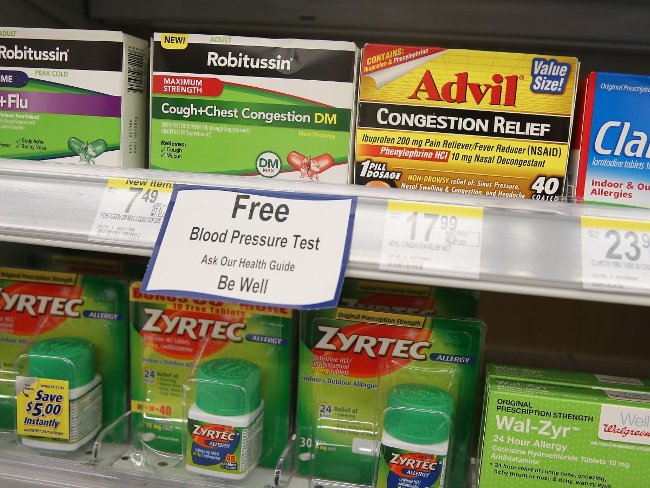 Photo source: Scott Olson / Getty Images
Photo source: Scott Olson / Getty Images
According to a reader named Ryan Borek , " It will be difficult to know if strange things can cause allergies, especially when camping or away, so bring your antihistamines with you. " .
8. The limits of the human body tend to follow the "principle 3".
 Photo source: Shutterstock
Photo source: Shutterstock
Ruchin Agarwal said: " Survivalists is an abbreviation for human limitations. Humans can usually live for three minutes without air, three hours in extreme weather without shelter. , three days without drinking water and three weeks without food ".
9. If the cooking oil catches fire, turn off the stove and close the lid.
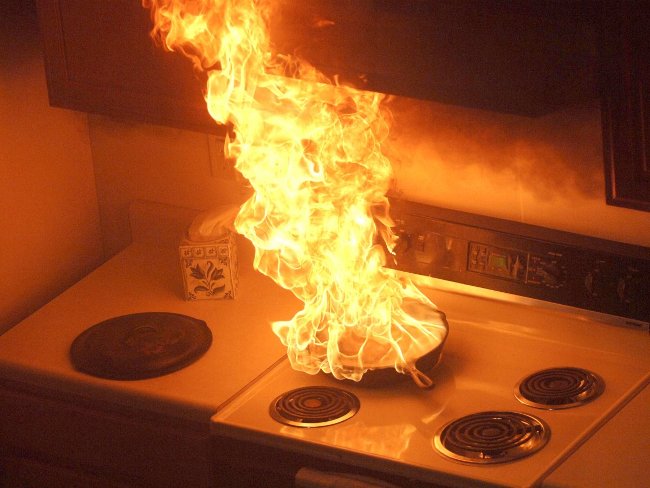 Photo source: State Farm / Flickr
Photo source: State Farm / Flickr
Ruchin Agarwal warns that people should not use water to burn fat . Because when the water molecules sink to the bottom of the hot pan, it immediately evaporates and even fires the flame above the original. Instead, reduce heat and eliminate oxygen by turning off the stove and closing the lid.
10. If you are stabbed or accidentally hit a sharp object, keep it fixed.
 Photo source: HBO
Photo source: HBO
Thomas Mei said: " Trying to pull a stuck object out of your body will cause blood to flow faster, leading to serious blood loss. Instead, try to bandage your wound or do any other things. First aid to prevent blood flow until you find a medical professional " .
See also: 10 simple first aid tips but 90% of people still do wrong
11. Most aircraft accidents usually occur within 3 minutes after take-off or 8 minutes before landing.
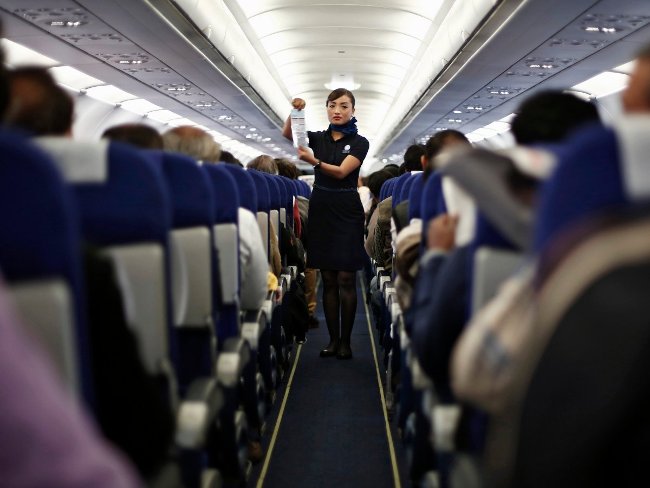 Photo source: Adnan Abidi / Reuters
Photo source: Adnan Abidi / Reuters
According to Sanket Shah , aviation safety must comply with the rule of + 3 / -8 . The principle encourages people to be cautious as soon as the aircraft takes off and before landing because nearly 80% of accidents often occur during this period.
You should take advantage of this time to be alert and find a way out instead of immersing yourself in movies or video games on your phone.
12. Most deaths in house fires are caused by smoke inhalation; not burns.
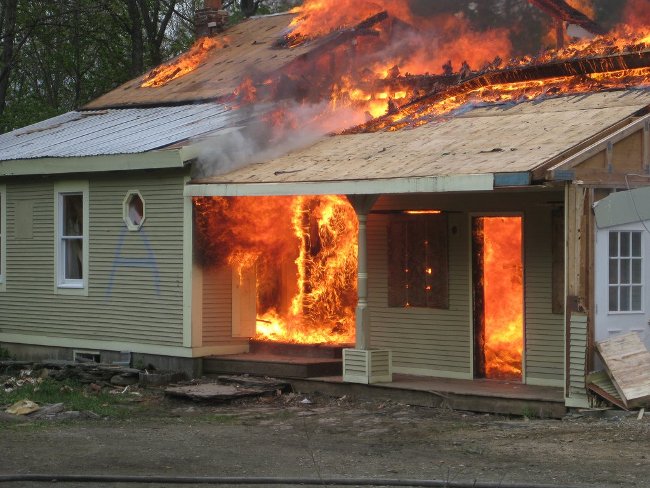 Photo source: Flickr / dvs
Photo source: Flickr / dvs
A reader named Harsh Sharma gave advice: " In case of a fire, try to stay close to the ground (lower to the ground) if possible to avoid inhaling too much smoke ."
- Guide 8 escape skills when there is fire in high-rise buildings
- The police officer instructed escape skills when he met a fire in a tall building with a rope
13. If you are injured in a public place, ask for help from a person to avoid the "alien effect".
 Photo source: Getty Images
Photo source: Getty Images
Sharma also explained: " The psychological phenomena studied have shown that crowds tend to not help victims because they all think that others will help the other victim ."
If you can still ask for help, choose a person and ask for help from that person. You will be more likely to get the support you need.
14. A flashlight can be the most powerful weapon against an attacker.
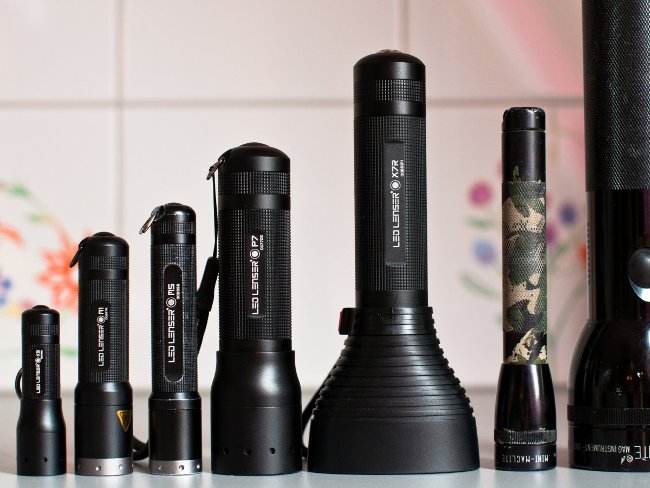 Photo source: Markus Tacker / Flickr
Photo source: Markus Tacker / Flickr
Sanket Shah users insist: ' Instead of carrying sticks or a weapon with you, an extremely bright flashlight can also help you avoid attackers effectively . If someone approaches you that looks aggressive, a light of 300 lumens illuminating the eyes of strangers (especially at night) will give you the opportunity to escape from danger. Even if the situation is wrong, this won't hurt and we won't have trouble because of it. "
15. If you get lost in a mountain, try to find a fence or stream.
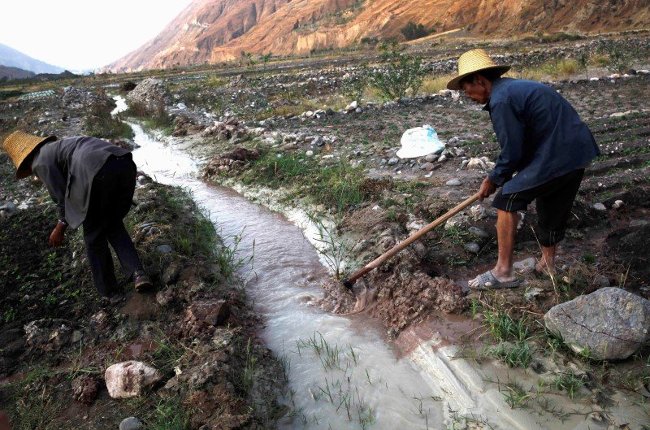 Photo source: Thomson Reuters
Photo source: Thomson Reuters
Jon Mixon said: ' Streams always flow down the slope and lead to a larger branch or part of a river or lake . Meanwhile, the fence almost always leads to a certain road or building . "
See also: The secret should be clear when floating in the sea
16. Use condoms to store water temporarily.
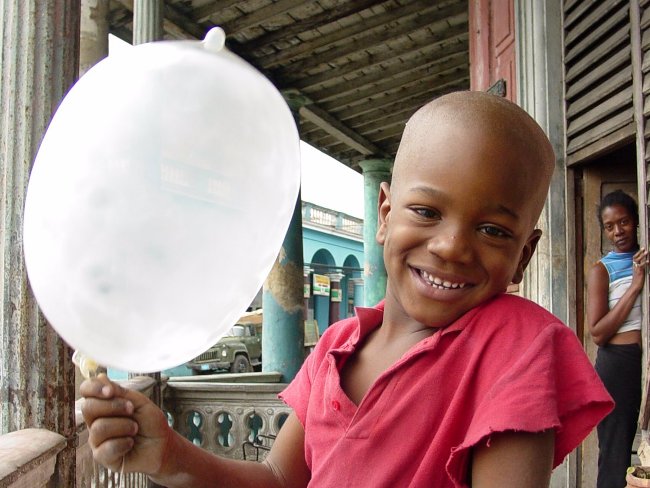 Photo source: Adam Jones / Flickr
Photo source: Adam Jones / Flickr
Condoms have very good elasticity. Users of Janis Butevics said: " You can take advantage of it if you need to store a large volume of water quickly. They work almost like bubbles and are able to hold 1 gallon of water, equivalent to 3.8 liters . In addition, they can also be used for waterproofing, as a cover to protect important items such as matchsticks and radios. "
17. Predetermined escape routes to help overcome 'normalcy bias - brain freezing' syndrome.
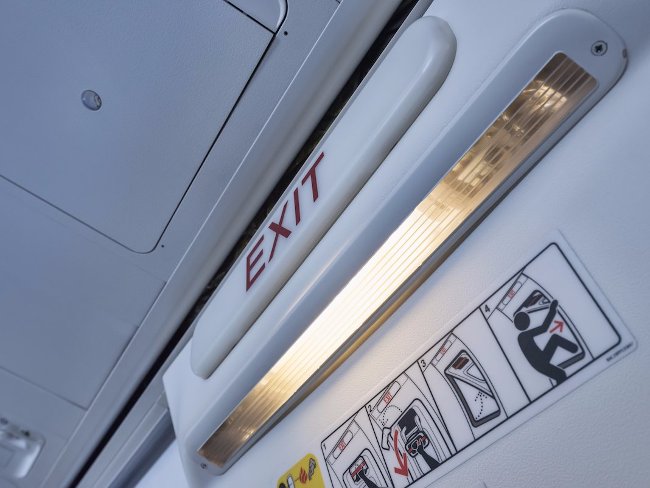 Photo source: Angelo Giampiccolo / Shutterstock
Photo source: Angelo Giampiccolo / Shutterstock
When the local government issued a warning about natural disasters, many people still stayed despite evacuation. As explained by John Ewing , psychology calls this phenomenon " biased normalcy ". Because our brains are accustomed to the non-dangerous environment around. Therefore, when faced with a critical situation, the brain takes some time to analyze what's going on around it and tends to ' freeze ' by ' fooling ' that ' everything will be fine.' 'or make similar assumptions.
However, people can overcome ' frozen brain ' syndrome by identifying escape routes while in public places , such as at a movie theater or in a restaurant when there is an emergency situation. happening.
See also: How to survive when an earthquake occurs?
Having fun!